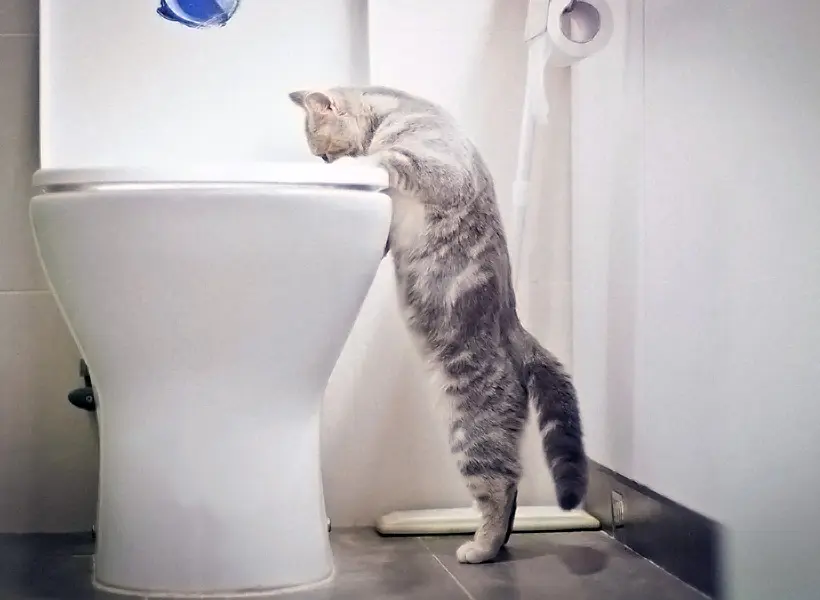Reasons You Shouldn't Flush Cat Poop Down Your Toilet - Preserve Your Pipe Health
Reasons You Shouldn't Flush Cat Poop Down Your Toilet - Preserve Your Pipe Health
Blog Article
We've found this post pertaining to Don’t flush cat feces down the toilet listed below on the net and accepted it made good sense to write about it with you over here.

Introduction
As cat proprietors, it's important to be mindful of exactly how we throw away our feline good friends' waste. While it might seem practical to purge pet cat poop down the bathroom, this method can have destructive consequences for both the setting and human health.
Alternatives to Flushing
Thankfully, there are safer and much more accountable ways to throw away feline poop. Take into consideration the complying with choices:
1. Scoop and Dispose in Trash
The most usual method of throwing away feline poop is to scoop it into an eco-friendly bag and toss it in the garbage. Be sure to make use of a specialized trash scoop and take care of the waste promptly.
2. Usage Biodegradable Litter
Opt for biodegradable cat clutter made from materials such as corn or wheat. These trashes are environmentally friendly and can be securely disposed of in the trash.
3. Bury in the Yard
If you have a yard, consider burying cat waste in a marked location away from vegetable gardens and water resources. Be sure to dig deep enough to prevent contamination of groundwater.
4. Mount a Pet Waste Disposal System
Invest in a family pet garbage disposal system especially created for pet cat waste. These systems utilize enzymes to break down the waste, reducing odor and environmental effect.
Health and wellness Risks
Along with environmental concerns, purging cat waste can likewise present health dangers to humans. Feline feces might include Toxoplasma gondii, a bloodsucker that can cause toxoplasmosis-- a potentially serious disease, specifically for expecting ladies and individuals with damaged body immune systems.
Environmental Impact
Flushing cat poop presents harmful microorganisms and bloodsuckers into the water, posing a substantial danger to aquatic ecosystems. These impurities can adversely influence marine life and compromise water quality.
Final thought
Accountable family pet possession extends beyond supplying food and sanctuary-- it also includes appropriate waste management. By refraining from purging feline poop down the toilet and opting for alternative disposal techniques, we can minimize our ecological footprint and safeguard human wellness.
Why Can’t I Flush Cat Poop?
It Spreads a Parasite
Cats are frequently infected with a parasite called toxoplasma gondii. The parasite causes an infection called toxoplasmosis. It is usually harmless to cats. The parasite only uses cat poop as a host for its eggs. Otherwise, the cat’s immune system usually keeps the infection at low enough levels to maintain its own health. But it does not stop the develop of eggs. These eggs are tiny and surprisingly tough. They may survive for a year before they begin to grow. But that’s the problem.
Our wastewater system is not designed to deal with toxoplasmosis eggs. Instead, most eggs will flush from your toilet into sewers and wastewater management plants. After the sewage is treated for many other harmful things in it, it is typically released into local rivers, lakes, or oceans. Here, the toxoplasmosis eggs can find new hosts, including starfish, crabs, otters, and many other wildlife. For many, this is a significant risk to their health. Toxoplasmosis can also end up infecting water sources that are important for agriculture, which means our deer, pigs, and sheep can get infected too.
Is There Risk to Humans?
There can be a risk to human life from flushing cat poop down the toilet. If you do so, the parasites from your cat’s poop can end up in shellfish, game animals, or livestock. If this meat is then served raw or undercooked, the people who eat it can get sick.
In fact, according to the CDC, 40 million people in the United States are infected with toxoplasma gondii. They get it from exposure to infected seafood, or from some kind of cat poop contamination, like drinking from a stream that is contaminated or touching anything that has come into contact with cat poop. That includes just cleaning a cat litter box.
Most people who get infected with these parasites will not develop any symptoms. However, for pregnant women or for those with compromised immune systems, the parasite can cause severe health problems.
How to Handle Cat Poop
The best way to handle cat poop is actually to clean the box more often. The eggs that the parasite sheds will not become active until one to five days after the cat poops. That means that if you clean daily, you’re much less likely to come into direct contact with infectious eggs.
That said, always dispose of cat poop in the garbage and not down the toilet. Wash your hands before and after you clean the litter box, and bring the bag of poop right outside to your garbage bins.
https://trenchlesssolutionsusa.com/why-cant-i-flush-cat-poop/

I came across that piece on How to Dispose of Cat Poop and Litter Without Plastic Bags when doing a lookup on the internet. Do you know anybody else who is intrigued by the topic? Why not share it. Bless you for your time. Kindly come by our website back soon.
Request Estimate Report this page